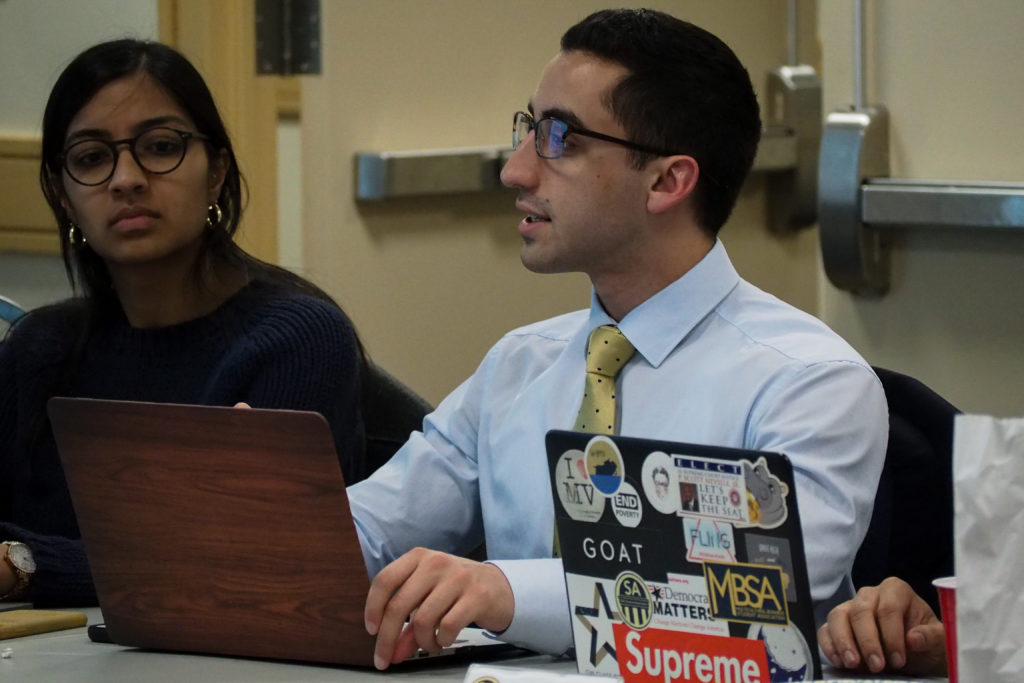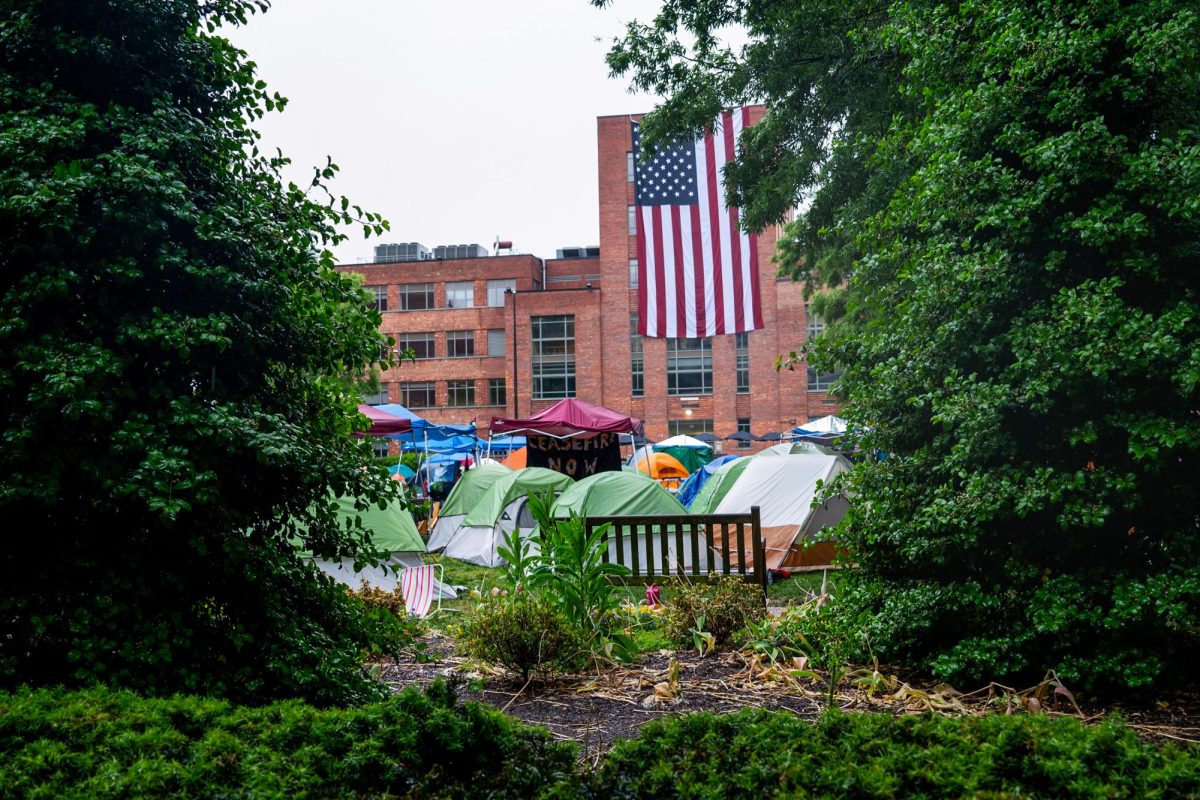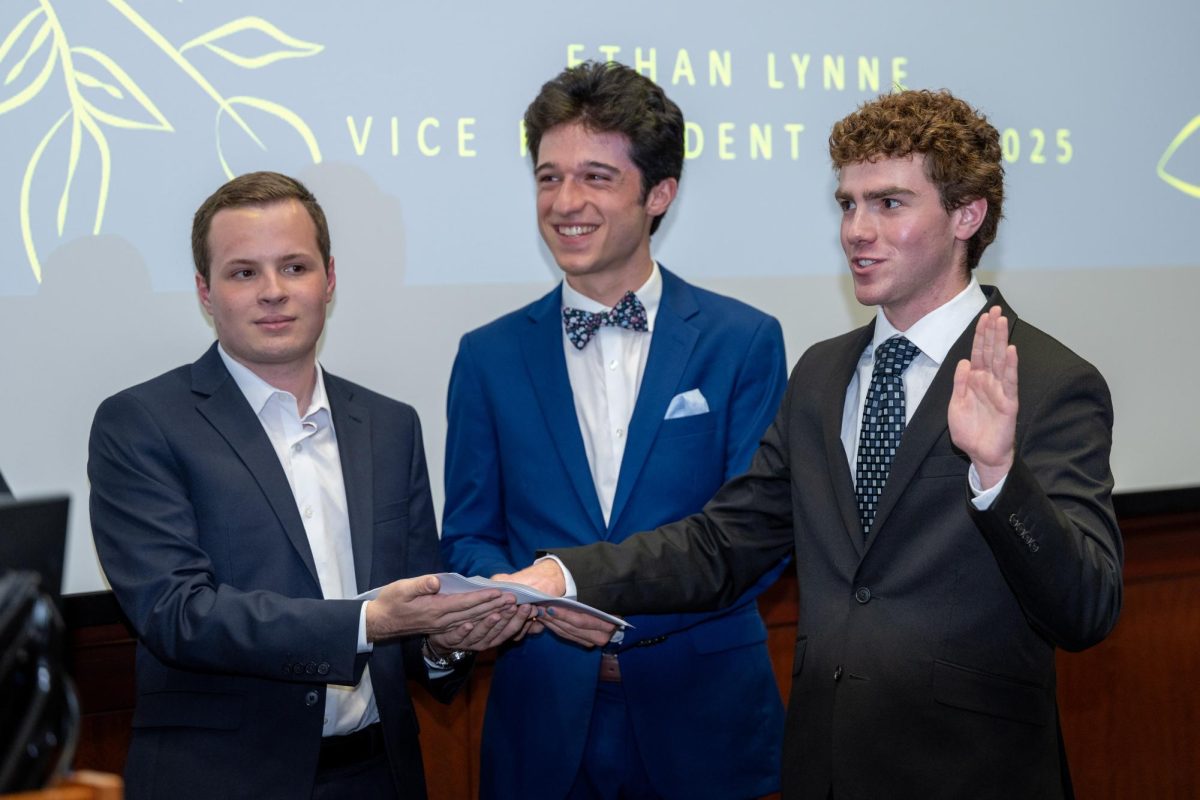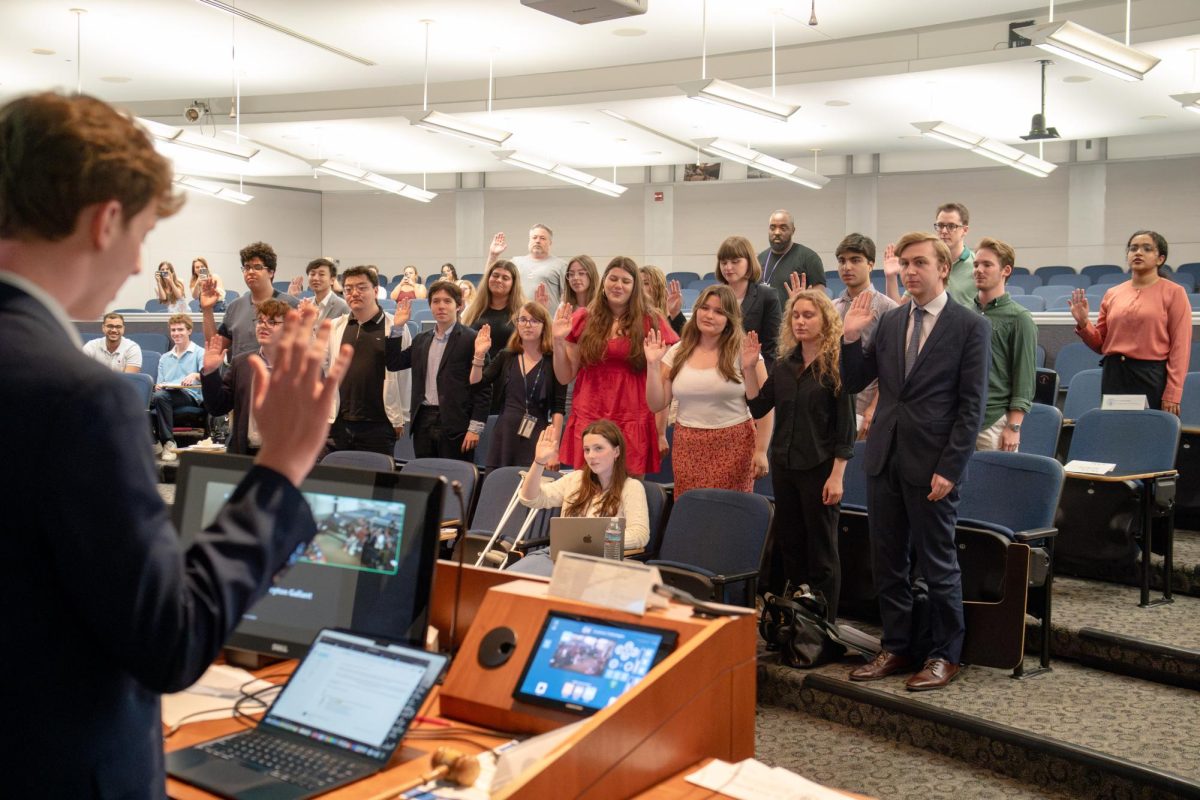The Student Association Senate received a record number of graduate student senator applications this year.
The governance and nominations committee received 21 applications this fall for specific school seats – the most the senate has received in recent memory. Senators said more graduate students may have applied for these seats because they can more easily access online meetings and push for a graduate tuition discount this fall.
“We are getting specific input from those schools that we usually don’t get senators from about what’s going on and about the issues that they are facing,” said SA Sen. Thomas Falcigno, CPS-G and the chair of the governance and nominations committee. “And that’s a really great thing for the Student Association to make sure we have people on the ground, telling us what’s happening in the schools that we usually don’t get senators from.”
Senators selected eight of the 21 applicants to pitch their interest in the SA at a meeting last week, and the senate confirmed five of those applicants.
The senate approved Antonio Navarello to represent the School of Nursing, Megan Freeman for the Graduate School of Education and Human Development and Mustafa Emin Oktay for the School of Engineering and Applied Science. Caroline Fuss and Connor Hounshell were also chosen as Milken Institute School of Public Health representatives.
Falcigno said members of the governance and nominations committee are holding interviews throughout October to confirm the remaining vacancies in the senate that have now been converted to graduate-at-large positions instead of school-specific seats. After 30 class days of a vacancy in a school specific seat, the seat becomes an at-large position, according to SA bylaws.
SA Sen. Jovawn McNeil, ESIA-U and a member of the governance and nominations committee, said the flexibility of online class allows them to tune into virtual senate meetings, driving an increase in applications. Without the commute to work and school every day, graduate students have more opportunities to participate in student organizations like the SA, he said.
“Remote allows us to do a lot more in terms of connectivity,” McNeil said. “They’re reaching out to everyone because we’re all in different places, and we’re all just in our crib online and come together at these meetings and not have to worry about any other aspects, like people who are commuters or who lived off campus or were grad students.”
The SA has a history of low representation of graduate students, and many SA graduate senate seats are often left vacant. To increase representation, then-SA Sen. AJ Link, Law-G, proposed splitting the SA into a bicameral legislative system in which graduate students would be able to meet separately and vote – which nearly 70 percent of students voted in favor of in a 2020 SA election referendum.
SA senators established the first-ever graduate student caucus late last month.
SA Sen. Edward Rastgoo, ESIA-U and the vice chair of the governance and nominations committee, said the increase in graduate student involvement will “diversify the voices” in the senate because the senate has had less graduate participation in recent years. He said the appointed graduate senators, in conjunction with the newly established graduate caucus, will create a better platform for all of the University’s graduate students.
“You know that they’re passionate about these issues, and you know that they actually came here to make change,” he said.
Rastgoo said graduate students may have been compelled to apply to the SA because they did not receive a tuition discount for the virtual fall semester as undergraduate students did. SA graduate student applications went live after officials said they didn’t plan to increase tuition for graduate students this academic year, according to an email sent to graduate students.
Rastgoo said he considered “diversity and perspective” from applicants like international and first-generation students when conducting interviews for the vacant positions.
“Through the SA, I think they are a powerful group that has a lot of great ideas and have a totally different perspective than undergraduate students do,” Rastgoo said. “Getting more passionate graduate students on the SA is just a great thing, and I’m glad that that has happened this year.”
SA Sen. Connor Hounshell, MISPH-G and a newly confirmed senator, said the controversies in the hiring of Heather Swain and “insensitive” statements from University President Thomas LeBlanc could have contributed to the uptick in graduate advocacy in the SA. He said during a pandemic when many graduate students have lost full-time jobs and are supporting families, officials should provide more support for their graduate students – like expanding the tuition decrease to graduate students.
“There was definitely a lot of frustration and disappointment with the University’s response to graduate students and not offering the same tuition reduction,” he said.
SA Sen. Caroline Fuss, MISPH-G, said students want to be included in discussions about potential policy changes like implementing a Pass/No Pass option, prompting an increase in applications. She said she will advocate for these two initiatives as a recently elected senator.
“Given all the new policy changes due to COVID that very directly impact us as students, I think now more than ever, people want a say or want to be a voice in helping to influence the policies that GW decides to adopt,” Fuss said in an email.
David Brothers contributed reporting.








